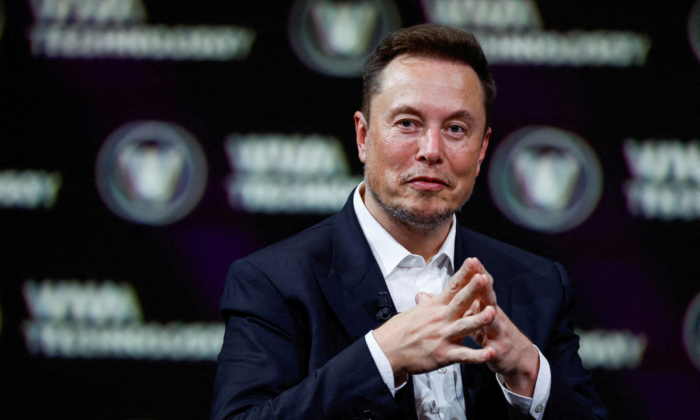


As a potentially crippling strike looms over the legacy auto industry, billionaire Elon Musk has taken aim at the powerful United Auto Workers (UAW), the union that represents the striking workers, to promote what he claims are better working conditions at his own automotive company, Tesla.
“Tesla and SpaceX factories have a great vibe. We encourage playing music and having some fun. Very important for people to look forward to coming to work!” Mr. Musk said in a September 14th post on X, “We pay more than the UAW btw, but performance expectations are also higher.”
United Auto Workers President Shawn Fain responded on CBS’s "Face the Nation" program on Sunday, claiming that workers in companies like Tesla “are scraping to get by so that greedy CEOs and greedy people like Elon Musk can build more rocket ships.”
The debate over who earns more pay depends on how income is measured, according to financial experts. Tesla workers earn about $45 an hour in wages and benefits, whereas UAW-represented employees at the legacy auto companies make on average between $64 to $67 an hour, according to Reuters. However, Mr. Musk says that employee stock options offered by Tesla make his factory workers among the highest compensated in the industry, claiming that “quite a few” line workers have become “millionaires over the years from company stock grants.”
Mike Shedlock, an investment analyst and at economic blogger at MishTalk, told the Epoch Times that while Mr. Musk has been correct that his employees have been paid more, his statement was also misleading in the context of potential future earnings.
“Musk only pays his employees more if you can consider stock options as pay, but stock options should not be considered pay since past performance is not necessarily indicative of future payments,” said Mr. Shedlock. “It's unlikely, but companies do go bankrupt and when that happens those options go to zero. However, over the past five years it is true that his employees at Tesla have been paid more.”
The simmering feud between the UAW and the vocally anti-union Tesla, both competitors in the electric vehicle market, has been several years in the making. Tensions appeared to have escalated in recent years with President Joe Biden's pro-labor administration appearing to form an alliance with the union-led Detroit automakers while often shunning Tesla, which accounts for 60 percent of all new electric vehicle sales in the United States.
In 2021, the administration held an electric vehicle summit and invited executives from General Motors, Ford, and Chrysler-parent Stellantis, collectively known as the Big Three, to the White House lawn, while snubbing Mr. Musk. When asked if Tesla’s non-union status was the reason the owner of the largest electric vehicle manufacturer wasn’t invited, then-White House press secretary Jen Psaki answered, “Well, these are the three largest employers of the United Auto Workers, so I’ll let you draw your own conclusions.”
In January 2022, in response to another perceived slight, this time during President Biden’s State of the Union, Mr. Musk called the president a “damp [sock] puppet in human form.” Mr. Musk would later claim that Biden “has pointedly ignored Tesla at every turn and falsely stated to the public that GM leads the electric car industry.”
In Mr. Musk’s most recent jab, financial experts believe the entrepreneur is hoping his remarks embolden union leaders to continue the strike, and in the process damage his fledgling competition.
“Musk is a genius. He is taunting the UAW and he is doing it well,” said Mr. Shedlock. “To the extent that he can contribute to a longer strike, or greater concessions from the automakers, he is only helping himself.”
More than 13,000 employees of the Big Three walked off the job at midnight on Thursday into Friday after management refused their demands for a four-day workweek and a 46 percent pay raise. The coordinated strike between the UAW negotiators and representatives of the Detroit automakers has become one of the most consequential industrial labor actions the country has seen in decades and comes at a time when membership in unions, which has been falling for decades, continue to reach new lows.
Further, the UAW’s work stoppage would present a massive obstacle for Detroit automakers, costing about $400 million to $500 million per week of production, just as they’re gearing up in hopes of challenging Musk’s Tesla.
The UAW and automakers resumed bargaining talks on Monday as the strike entered its fourth day. However, the longer the strike stretches and the more damage it imposes on the legacy automotive industry, it will be to the benefit of Mr. Musk and Tesla.
“Right now, Elon Musk is the only one producing electric vehicles, and if he has it his way, he will keep it that way for as long as possible,” said Mr. Shedlock.

